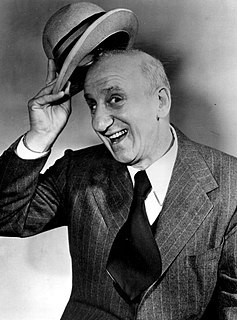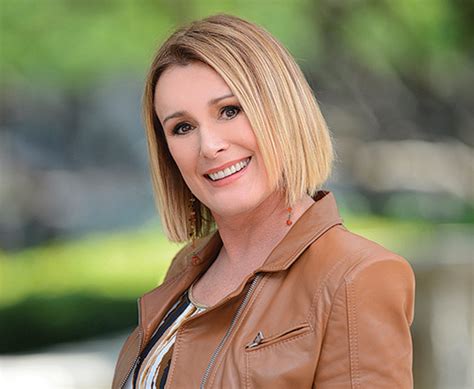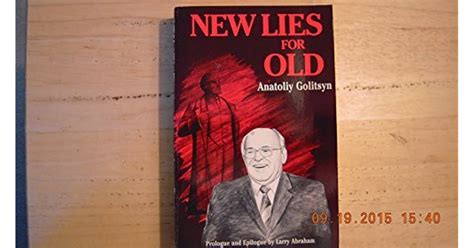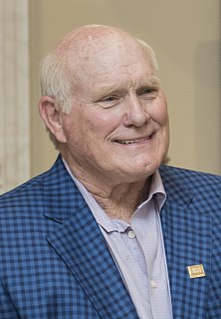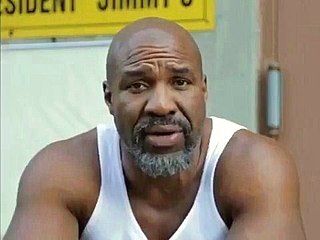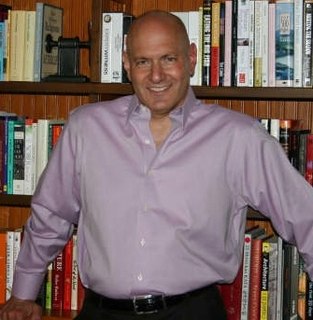Top 1200 Postpartum Depression Quotes & Sayings - Page 3
Explore popular Postpartum Depression quotes.
Last updated on November 21, 2024.
Until the Great Depression, most economists clung to a vision of capitalism as a perfect or nearly perfect system. That vision wasn’t sustainable in the face of mass unemployment, but as memories of the Depression faded, economists fell back in love with the old, idealized vision of an economy in which rational individuals interact in perfect markets.
There is enormous shame around depression of any kind and at any time. And there's enormous social stigma attached to it, which we need to go on fighting. But I think that the sense of depression during pregnancy and early motherhood has been particularly stigmatized, that people especially feel that should be the happiest time of your life.
My parents have been very supportive, in fact, it was my mother who identified that what I was going through was actually depression. My family and friends never let me feel as if something was wrong with me. They made me feel that what I was going through was okay. They supported my decision to take medication for depression.
A state does not simply fall apart as a result of depression... [Weimar Germany] was not destroyed by economic depression or widespread unemployment, though these naturally contributed to the atmosphere of doom, but because the Weimar Right was resolved to abolish the parliamentary state in favour of a vaguely conceived authoritarian state.
Life has to keep going, so you can either be a victim the rest of your life and let it drag you down into drugs and alcohol and depression or you can turn it into something good, fun even, you know, and I tell young people who are going through depression that this might be the most important time of your life. This might be what makes you a great artist later on.
It's very important to me that people know that depression doesn't discriminate. A lot of people look at people who have depression and think that it's not legitimate because they're wealthy or it looks like everything seems to be doing fine. But it doesn't pick and choose. It can affect anybody in the brain, no matter how perfect your life seems.
Depression is the most unpleasant thing I have ever experienced. . . . It is that absence of being able to envisage that you will ever be cheerful again. The absence of hope. That very deadened feeling, which is so very different from feeling sad. Sad hurts but it's a healthy feeling. It is a necessary thing to feel. Depression is very different.
We live in a culture of quick fixes. We want to feel better and we want to feel better now. I believe that's why many turn to alcohol and drugs because they want to numb the pain of life. In my life I have a choice. I can sit with my depression and look at Jesus or I can sit with Jesus and look at my depression. What I mean by that is I can focus on what's broken and wonder where God is or I can sit in the companionship of Christ who suffered for us and worship him in the middle of the mess. That gives my pain meaning and context.
They [the Soviets] intend...to induce the Americans to adopt their own 'restructuring' and convergence of the Soviet and American systems using to this end the fear of nuclear conflict.... Convergence will be accompanied by blood baths and political re-education camps in Western Europe and the United States. The Soviet strategists are counting on an economic depression in the United States and intend to introduce their reformed model of socialism with a human face as an alternative to the American system during the depression.
The Great Depression was going on, so that the station and the streets teemed with homeless people, just as they do today. The newspapers were full of stories of worker layoffs and farm foreclosures and bank failures, just as they are today. All that has changed, in my opinion, is that, thanks to television, we can hide a Great Depression. We may even be hiding a Third World War.
Capitalism can be alright, I mean Karl Marx didn't live to see what Roosevelt did with that Depression. He pulled everybody out of that Depression and everybody hated Franklin Roosevelt. He got into office four times. One after the other, with everybody saying, he can't get in again. Everybody voted for Roosevelt four times and he did a hell of a lot.
I don't think I suffered with depression, I don't think I'm a depressed type of person - I just think I suffered a depression to do with snooker, and I just couldn't handle it. I could go out and play, but take me out of there and I couldn't do life. It was a nightmare, my life just felt like a bit of a nightmare.
This depression comes over me whenever the Lord is preparing a larger blessing for my ministry; the cloud is black before it breaks, and overshadows before it yields its deluge of mercy. Depression has now become to me as a prophet in rough clothing, a John the Baptist, heralding the nearer coming of my Lord's richer benison
Perhaps, the answer is that my ravaged mind rails against the idea of God, but something deeper in me calls out as if God might answer. 'There are not foxholes,' I guess, and depression is the deepest and deadliest foxhole I've been in. It may be the 'dark night of the soul' that the mystics talk about but in depression it is not so much that one becomes lost in the dark as one becomes the dark.
I know many of you are hurting and angry about the economy, and I don't blame you. It's the worst economy since the Great Depression. When consumers can't buy and businesses won't expand for lack of customers, the government has to be the purchaser and employer of last resort. We learned that in the Great Depression, but Republicans obviously didn't - and they've blocked every jobs program I've offered.
Some authors have conceptualized depression as a "depletion syndrome" because of the prominence of fatigability; they postulate that the patient exhausts his available energy during the period prior to the onset of the depression and that the depressed state represents a kind of hibernation, during which the patient gradually builds up a new story of energy.
In order that people who suffer from depression seek treatment without a second thought, the stigmas must further fall until we reach a point in time when that person with leukemia and that person with depression both receive the same level of sympathy and the same level of rigorous treatment. Both people deserve it.
The Fed was largely responsible for converting what might have been a garden-variety recession, although perhaps a fairly severe one, into a major catastrophe. Instead of using its powers to offset the depression, it presided over a decline in the quantity of money by one-third from 1929 to 1933 ... Far from the depression being a failure of the free-enterprise system, it was a tragic failure of government.
In the psychological literature, depression is often seen as a defense against sadness. But I'll take sadness any day. There is no contest. Sadness carries identification. You know where it's been and you know where it's headed. Depression carries no papers. It enters your country unannounced and uninvited. Its origins are unknown, but its destination always dead-ends in you.
Unless you are political or intellectual, events like the Depression are seen as personal events. We thought of the Depression as something that made the pipes freeze; we thought it hit us because Daddy didn't move his taxi stand and because he broke his hip. It was only later I found out it was a national phenomenon.
Because depression is so thematically powerful and so dark, when it's very severe, it can make people feel not only as if they've lost a loving connection, but as if the whole world is devoid of love. So if we wonder how somebody could take 149 people with him when he commits suicide, one answer can be that depression, when it's most severe, can make people feel that life is completely without value, not just for them but for anyone.
If you know someone who’s depressed, please resolve never to ask them why. Depression isn’t a straightforward response to a bad situation; depression just is, like the weather. Try to understand the blackness, lethargy, hopelessness, and loneliness they’re going through. Be there for them when they come through the other side. It’s hard to be a friend to someone who’s depressed, but it is one of the kindest, noblest, and best things you will ever do.
An underpaid man is a customer reduced in purchasing power. He cannot buy. Business depression is caused by weakened purchasing power. Purchasing power is weakened by uncertainty or insufficiency of income. The cure of business depression is through purchasing power, and the source of purchasing power is wages.
Ironically, though our society of affluence brings safety and stability, it doesn't bring psychological health. As wealth goes up, suicide and depression rates tend to go up. I read one study that compared women in North America with women in Nigeria, and the group with the highest rates of depression was urban North American women, which is the wealthiest. Now, there are obviously huge stresses that come with poverty, but the poorer the society, the more collaborative people have to be.
It is important for us to make a distinction between the spiritual fruit of joy and the cultural concept of happiness. A Christian can have joy in his heart while there is still spiritual depression in his head. The joy that we have sustains us through these dark nights and is not quenched by spiritual depression. The joy of the Christian is one that survives all downturns in life.
In the great depression, things could only be set right by causing the idle plant to work again . . . Roosevelt . . . spent billions of public money and created a huge public debt, but by so doing he revived production and brought his country out of the depression. Businessmen, who in spite of such a sharp lesson continued to believe in old-fashioned economics, were infinitely shocked, and although Roosevelt saved them from ruin, they continued to curse him and to speak of him as 'the madman in the White House.' . . . [It's one more] striking example of inability to learn from experience.
The Panic of 1819 exerted a profound effect on American economic thought. As the first great financial depression, similar to a modern expansion-depression pattern, the panic heightened interest in economic problems, and particularly those problems related to the causes and cures of depressed conditions.
Writers, especially poets, are particularly prone to madness. There exists a striking association between creativity and manic depression. Why are more creative people prone to madness? They have more than average amounts of energies and abilities to see things in a fresh and original way—then because they also have depression, I think they’re more in touch with human suffering.
From the Great Depression, to the stagflation of the seventies, to the current economic crisis caused by the housing bubble, every economic downturn suffered by this country over the past century can be traced to Federal Reserve policy. The Fed has followed a consistent policy of flooding the economy with easy money, leading to a misallocation of resources and an artificial 'boom' followed by a recession or depression when the Fed-created bubble bursts.
One of the manifestations of depression for me is that I lose my will. And I thereby lose my ability to focus. I don't think I'll ever have the day-to-day consistency in my performance that something like This American Life has. If I'm not depressed and I'm on and I can focus and I can think through something hard and without interruption and without existential emptiness that comes from depression, that gives me - not mania. But I exalt. I exalt in not being depressed.
In fact, during the postpartum period, many mothers don't feel attached towards her new born. So during such times they are quite sensitive and require special care. Still there are people who don't think twice before making hurtful comments about how a mother looks. I fail to understand what satisfaction they get out of body shaming others.
Looking after children can be a subtle way of giving up... They become the whole ones, the well ones, the postponement of happiness, the ones who won't drink too much, give up, get divorced, become mentally ill. The part of oneself that's fighting against decay and depression is transferred to guarding them from decay and depression. In the meantime one decays and gets depressed.
Depression presents itself as a realism regarding the rottenness of the world in general and the rottenness of your life in particular. But the realism is merely a mask for depression's actual essence, which is an overwhelming estrangement from humanity. The more persuaded you are of your unique access to the rottenness, the more afraid you become of engaging with the world; and the less you engage with the world, the more perfidiously happy-faced the rest of humanity seems for continuing to engage with it.
Every Christian who struggles with depression struggles to keep their hope clear. There is nothing wrong with the object of their hope - Jesus Christ is not defective in any way whatsoever. But the view from the struggling Christian's heart of their objective hope could be obscured by disease and pain, the pressures of life, and by Satanic fiery darts shot against them... All discouragement and depression is related to the obscuring of our hope, and we need to get those clouds out of the way and fight like crazy to see clearly how precious Christ is.
It's awful to have a depression, but it's a great thing to have a depression mentality because it means that we are not speculating, we are not living beyond our means, we don't quit our job to take a big risk because we know we might not get another job. There is something stable about a country, a society built on those values.
